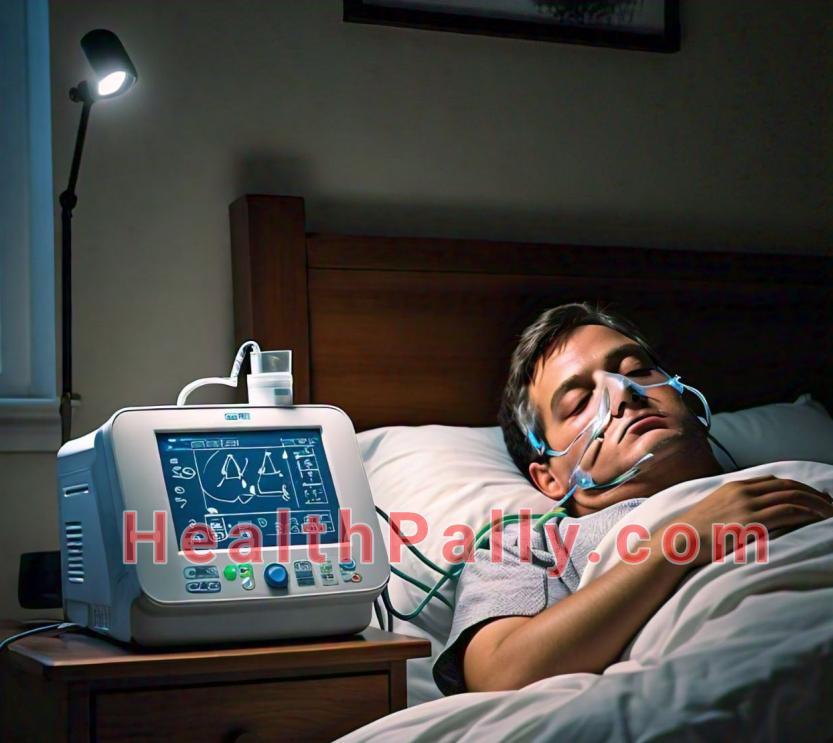In all honesty, doctors and scientists haven’t been able to discover exactly why we sleep.
However, we do know that not getting enough sleep can severely lower a person’s ability to function and, in some extreme cases, can lead to death.
Some people don’t get enough sleep because of a new baby or a lot going on at work, but other times it can be related to a sleep disorder.
If you have a sleep disorder, it’s important to get it resolved as quickly as possible to keep yourself active and healthy throughout the day.
If you suspect you have a disorder, learn more information here.
Sleep Disorders
Disorders come in a variety of different shapes and sizes depending on the person and the cause.
Here are some of the most common disorders known today:
Sleep Apnea
There are generally two types of sleep apnea: central sleep apnea and obstructive sleep apnea.
Central sleep apnea: refers to breathing problems that affect sleep.
Obstructive sleep apnea: refers to a sleeping problem that affects breathing.
The difference is based on the cause of the issue.
We will focus mostly on obstructive sleep apnea.
Symptoms of Obstructive sleep apnea
- Snoring
One of the most common signs of obstructive sleep apnea is loud snoring.
Snoring occurs because a person isn’t able to breathe properly during their sleep.
While half of the people who snore loudly have obstructive sleep apnea, it can be difficult to determine if you have it or not.
- Serious Fatigue
Besides snoring, other signs of a problem include being tired throughout the day.
The breathing disruption causes people to wake up several times throughout the night without any knowledge of it.
Therefore, the person isn’t getting good, uninterrupted sleep.
When the snoring and the problems are getting bad enough, it’s time to go to a sleep clinic.
Sleep studies have shown that people can help obstructive sleep apnea by losing weight.
Another possible solution is to use a breathing machine while you sleep.
In some situations, if sleep therapy doesn’t work, a doctor might recommend surgery to help resolve the problem.
Insomnia
Insomnia refers to a problem falling asleep and staying asleep.
People who suffer from this condition can stay up all night trying to count sheep with no success.
Many times, they will simply wake up early since they weren’t able to get any sleep.
The disorder generally lasts days to a couple of weeks until its naturally resolved.
In some severe cases, people have insomnia for months at a time.
Insomnia can take a huge toll on a person’s life, particularly affecting their mental condition.
People with insomnia are 10 times more likely to go through depression.
They may also experience anxiety and mood disorders.
There are many reasons a person might experience insomnia.
Some people experience it because of daily stress. Other people develop it after starting a new medication.
Treatment of Insomnia
There are several ways to treat insomnia. In some cases, a doctor may prescribe medication.
While effective, some sleeping medications can be addictive.
In the worst situations, an addiction could lead to death.
For a more natural approach, people try establishing a routine and turning off all electronics.
Narcolepsy
Narcolepsy is one of the rarest disorders. The condition is characterized by a person suddenly falling asleep with no warning.
This can be very inconvenient and embarrassing. Imagine falling asleep in the middle of a presentation at work!
Now, it can also be very dangerous. Many times, people are limited in their career options and might not be able to drive because of the condition.
Narcolepsy is caused by a lack of a certain substance to the brain. At this time, there is no cure.
However, we do know to help a person live a normal life with their condition.
Restless Leg Syndrome
While it may not seem like a real problem, restless leg syndrome is very real and can very much interrupt a person’s sleep.
It’s estimated that 10% of Americans suffer from this disease.
The afflicted person will experience uncomfortable sensations in the legs, especially when trying to lay still.
To relieve the discomfort, the person will generally continuously move their leg. This movement makes it more difficult to sleep.
While the cause of restless leg syndrome isn’t specifically known, some evidence points to cardiovascular issues.
In may cases, a patient who makes sudden jerks because of their restless leg syndrome has a spiked blood pressure at the same time.
Other causes could be genetics. People who have the problem have people in their family with the same problem.
Getting help for a sleep disorder takes time and patience. These disorders have a lot of possible causes and treatments, so it’s important to find sleep therapy that works best for you.
The first step is to examine the problem. It’s a good idea to record your sleep patterns if possible to help gather information.
Next, the patient will go to a sleep clinic to overgo sleep studies that can help obtain more data.
Finally, it’s time to choose and try the treatment.
It may take time for treatment to work. Part of the treatment is being patient and trying different methods until you find what works.
Never give up on your goals to get a good night’s sleep, because it can change your life in ways you couldn’t imagine.
